









Written by Emma Colyer MBE
It is now 27 years that Body & Soul has been liberating people from the devastating, limiting and life-shortening effects of trauma. Our continued evolution and development brings together the collective wisdom of this revolutionary organisation and ever-emerging research on trauma therapy. What we put into practice is a synthesis of this, within an intentional vibrant community of members whose lives have

been shaped by trauma and adversity. This year’s report is a ‘snapshot’ of our evolving model and a chance to understand why we don’t look or behave like most other charities.
At Body & Soul we talk a lot about our early history and the emergence of a community of HIV+ women and their families who were, at best, unserved by the HIV charity sector and at worst,
ostracised. As a community of largely black African women and families, there was no safe place in a world that oppressed them not only because of their HIV status but also because of their race. It makes sense that the mainstream responses to HIV also failed to understand their collective experience, one where life did not suddenly become hard because of HIV – one that had already been shaped by war, genocide, murder, racism and profound trauma.
The founding members of the community were people who primarily connected to the human experience of this multitude of traumas and a desire to gather the wisdom to restore hope. Over 2 and a half decades later, Body & Soul operates as a therapeutic community that connects to wider populations that are also defined by trauma, whether it be suicidal young people or care-experienced children removed from their birth families.
As with our original mission, we meet trauma when nobody else is prepared to. When trauma separates you from your body and removes any sense of self and soul, the naming of Body & Soul was itself an act of defiance, instilling belief to reclaim a place in the world.
Our intention to create a human, communal experience is the essential element that creates hope and change. The communal has always been at the centre of the Body & Soul model. In Bessel Van der Kolk’s words:
“ The brain buries feelings only if they can’t be spoken about, because of the risk of alienation, from a family (this is particularly relevant to abused children) or from society (this is what silences veterans). Large, shared events – 9/11, for instance – which are not suppressed, which in fact bring those affected together, do not leave the same scars.”.
Our community has equally driven our search for what actually works. In this report, you will read of a rich mix of creative arts, expression, movement and nutrition. Our community members have brought together their cultures coupled with a communal healing wisdom. The result is a vibrant environment that stands in stark contrast to mainstream health that further divides fragmented lives into the constructs of physical and mental health, supported by an outdated medical model where trauma remains unseen and unresolved.
Van der Kolk puts it,
“If the body is storing trauma in its musculature, in its hormonal pathways, then it is the body that needs experiences that deeply and viscerally contradict the helplessness, rage or collapse that result from trauma.”
This is why we cannot fully capture everything in this report. It’s not purely what we do that matters, but the human experience of it that re-humanises. Put simply, given that the wider everyday world was the source of the trauma, it makes sense that Body & Soul looks and behaves very differently.
Welcome to our world...

Williams, Z. (2021) Trauma, trust and triumph: psychiatrist Bessel van der Kolk on how to recover from our deepest pain. Available at: https://www.theguardian.com/society/2021/sep/20/trauma-trust-and-triumph-psychiatrist-besselvan-der-kolk-on-how-to-recover-from-our-deepest-pain.
This Annual Report captures the life of Body & Soul through 2023 and also aims to describe the unique context in which we run as a community and organisation. Our shared culture is what members who have been away refer to when they commonly say, “It looks a little different but it feels just like it always did.”
Throughout the 2023 report, we will reference the features of our trauma-engaged environment that all play their part in building a sense of communal belonging and acceptance.
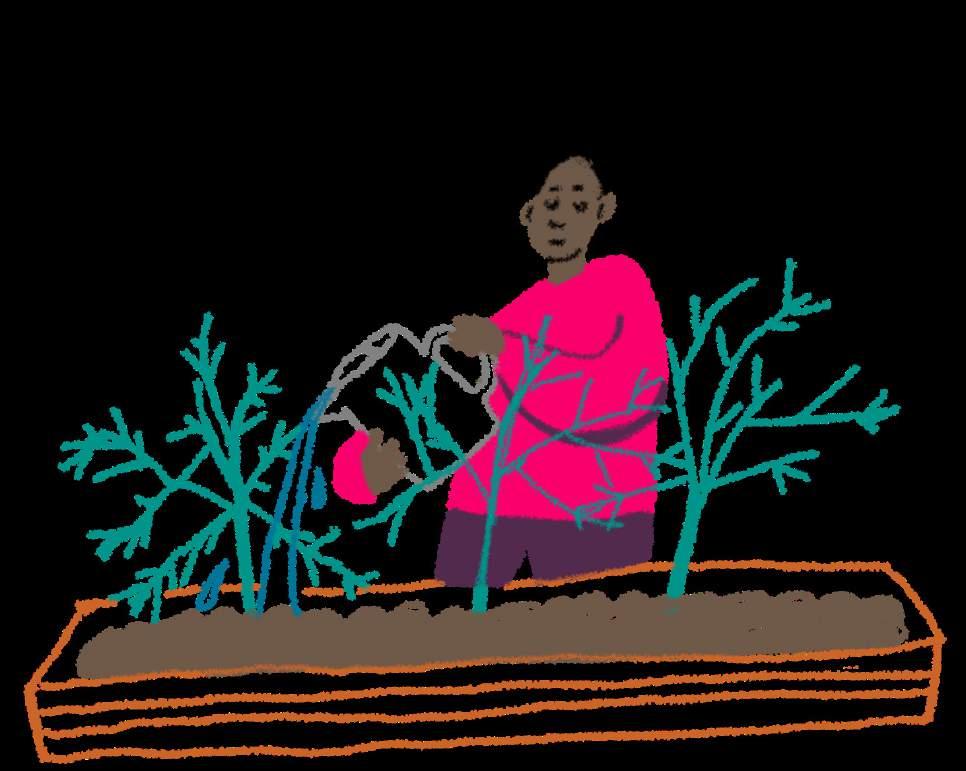
It is held that all true human communities are evidenced by their adoption of ritual and B&S is no different. Throughout the week, members gather over food in every session. Gatherings of every kind begin with a mindful grounding, helping everyone be present and be the best version of themselves.

In a wider world that is focused on defining problems and fixes, here we focus on talents, strengths and abilities. The way forward, we believe, is generally through building on strengths even if the person themselves is unable to recognize these. The community is here to support the nurture of every individual member.
Trauma cannot exist without an imbalance of power. There are no uniforms or badges visible anywhere at Body & Soul. Our efforts cannot reinforce patterns of power that members have experienced adversely. However, Elders within the community earn status through the sharing of wisdom and service to the community.
Our way of being is to value and bring together all generations to address cycles of trauma. Trauma is intergenerational and interrupting this pattern ensures that younger generations do not have to suffer from the trauma experienced from the past.
Being in communion with others requires us to understand a shared set of behaviours that work for everyone. These are ritually shared every session to provide consistency.

Joining Body & Soul does not come with an expiry date or someone else’s view of when you are ‘done’. The invitation is to stay as long as it is useful and as long as you can contribute. We find that life often becomes so busy, we naturally see people less and less, but there is always a place here.
Like all parts of B&S, the expectation is one of finding balance. The community is protective and considerate of every individual and vice-versa. The relationship is always reciprocal and therefore transformational not transactional.
Our collective wisdom comes from many sources: from lived experience, research, academia, reflective practice, openness to all cultures and valuing diversity of thinking.
Art and creative expression offer a unique language through which we can process and heal from traumatic experiences. Engaging in these activities provides a means of selfexpression, self-discovery, and empowerment. It allows us to connect with our emotions, release pent-up feelings, and find new perspectives on our trauma.
Marking key steps on our journey of life is something we take seriously. From greeting new members to celebrating achievement, this has become engrained into life here, like our annual YANA Graduation is a community-wide marking of everyone completing 6-months of DBT therapy.
“Rarely, if ever, are any of us healed in isolation. Healing is an act of communion”
- bell hooks
Our language has developed to reflect an environment that is the antithesis of those that have contributed to our members’ trauma. It rebalances power and offers possibilities rather than limitations. Here’s a part of our community glossary.
To actively apply a range of behaviours that create an accessible environment for people who have experience of trauma.
These behaviours work on the presumption that everyone has been impacted by trauma of some kind. If you are the exception, you’ll still benefit from the environment.
Please Note: We welcome being ‘trauma informed’ and ‘aware’ and know that this has to be translated into behaviour before it benefits others.
Anything that is “too much, too fast, too soon”, or “not enough for too long”.
Traumatic events can exceed our capacity to cope and cause a disruption in emotional functioning. Whilst not inherently life threatening, they leave an individual feeling a sense of helplessness. They can include interpersonal conflict, microaggressions, financial worries, abrupt relocation, exposure to racial bias and racist micro aggressions.
*Resmaa Menakem
B&S is above all else an intentional community. Community in the wider world has often been the source of trauma.
It is not by chance that here people transcend the trauma they have experienced, it is through: Being asked ‘what happened?’ Not ‘what’s wrong with you?’
Staying as long as you need. Finding a sense of value and purpose. Experiencing a sense of belonging Discovering a sense of trust.
Trauma therapy is a form of therapy that can help you understand and heal the lasting impact of trauma. Body & Soul practices a nonhierarchical therapeutic approach. Whilst we embrace traditional psychotherapeutic modalities that play a part in a member’s journey, we know their limitation. Our wisdom is that healing occurs equally in relationship, community, creativity and connection. Rich therapeutic spaces exist throughout Body & Soul beyond the therapy room that are often key to a member’s health & well-being.




At Body & Soul our focus is beyond symptoms to healing holistically and equipping people to heal themselves. We approach the person as a whole organism and a whole being, helping to balance that person’s whole system. We aim for members to not only deal with the trauma—physical, psychological or social—but help them to develop a connection with who they’re meant to be.
At Body & Soul we love our way of doing things: always eating together, grounding our bodies and minds, joining together as a group, welcoming new members, celebrating success and the continuation of life. These were not designed, they became. They help us remember where we came from and why this community is different. Our rituals communicate ‘togetherness’, ‘belonging’ and ‘acceptance’.


Given we are a community with a shared experience of trauma, we need to be able to regulate our own emotions and stay grounded. Being able to do this requires an awareness of self and our own nervous system, and what is required to regulate it. Between us we have a wealth of skills and approaches that can be taught and learnt, starting with mindfulness as a foundation. Our regulated nervous system has the potential to regulate the nervous systems of others.
“The capacity to be present with and understand and see the other human being for exactly who they are and to accept them for who they are and to invite them unconditionally to be in your presence exactly the way they are.. that is what love actually is.”
― Gabor Maté
At Body & Soul, love is concrete and real. It is everything we do that brings 4 vital elements to the community:
• Belonging
• Wholeness
• Learning
• Justice

Written by Miren
Our longest running community is focused on the healing and transformation following experiences of trauma and adversity. We aim to transform the experience of people’s trauma and de-stigmatise living with HIV.
Importantly the service is delivered in a community-based context whereby members build social connections, share from their lived experience, de-stigmatise living with HIV and build resilience.
Our holistic model of health validates each person’s life experiences and includes a whole person approach. We consider multiple areas of need: physical well-being, emotional and mental health, practical support needs and personal goals. This is an integrative perspective of wellbeing that focuses on ‘what happened to you?’ rather than ‘what’s wrong with you?’
The service operates from 9-5pm, Monday to Friday to provide assessment and one-to-one emotional support, as well as the individual pathway planning that ensures every family’s needs are met. The weekly Tuesday evening communities see an average of 80-100 adults with parallel programmes for children and young people. Our quarterly programme plans deliver a range of opportunities for members to build resilience and agency in optimising their health and well-being.




Community Numbers: 90% Over 81% 70% of our members live in poverty 90%
of our members come from BIPOC communities are feeling socially isolated
Men’s & Women’s Only workshops
15 Creative & Arts Courses
Nutrition & Wellbeing groups

report experiencing discrimination as a result of their HIV diagnosis, which makes the support our community at Body & Soul, offer, even more vital and important
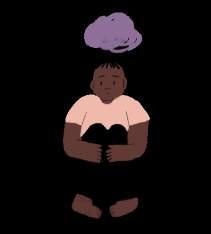
Parents’ Support Group
9 Bodywork & Movement sessions

Together, over several weeks, 60 members of our HIV programme weaved the narratives of their lived experiences into a large-scale tapestry. This community artwork was the medium to communicate our hardest experiences, building a culture where members can feel brave and vulnerable and more supported and less alone in their moments of adversity. To contribute, members were invited to think of a symbol, image or word(s) which might represent an experience they’d like to share, working towards weaving it onto ‘The Tapestry of Imperfections’. By using discarded fabric, we were reflecting how things deemed imperfect can, with a different lens and through collective care, be beautiful.

12
Whole community celebrations 4 Immigration & General legal clinics

‘We didn’t talk about things like this in my community, my feelings and experiences, so it is hard but good to have a place where I can talk and ‘I can’t wait to see my work on show in a big place, it is so beautiful what we made’.

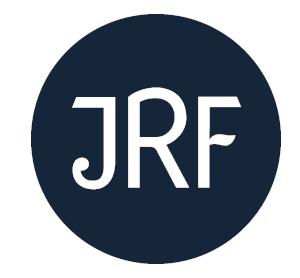

The ‘Destitution in the UK 2023’ Report by the Joseph Rowntree Foundation evidenced a range of factors that describe the community here and the increased risk of destitution. The Body & Soul community has been a safe harbour for those most at risk from the cost of living crisis.

JRF:
The number of children experiencing destitution since 2017 has almost tripled with an increase of 186%.
Body & Soul: 82% of members do not always have enough money for food for themselves and their families

Body & Soul:
The rate of destitution among black-led households was three times their population share.
91% of the community are black or of colour.

The number of people experiencing destitution has increased by 61% since 2019.
Body & Soul: 48% of members are unable to work for immigration status reasons, 23% because of health reasons
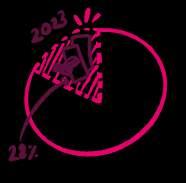
People who have migrated to the UK were overrepresented among those experiencing destitution. That’s 28% of the total.
Body & Soul: 75% of B&S members are migrants or refugees

JRF:
Almost two-thirds (62%) of destitute survey respondents reported having a chronic health problem or disability.

Body & Soul: 2000+ members living with HIV in 2024 live with multiple comorbidities such as diabetes and cancer
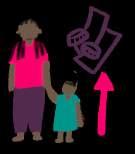
JRF:
Whilst single people remain most at risk of destitution (comprising almost threefifths of the destitute population), destitution is experienced by a growing number of families with children, particularly Lone-parent households
Food Crisis & Destitution
Body & Soul: 90% of parents at Body & Soul are lone parents
Housing advice








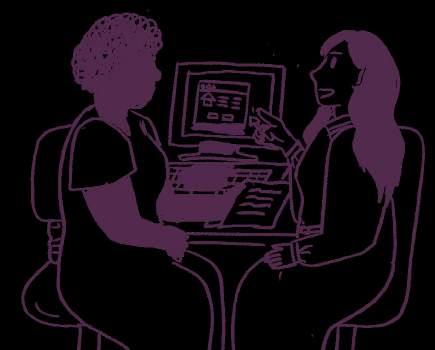
“I was first diagnosed HIV positive when pregnant with my daughter. Back then I was depressed, stressed and struggling to eat. With English as a second language it’s not easy to find help you need, but Body & Soul has been good when I’ve needed help with housing. My private landlord tried to evict me without warning, even though he was getting my housing benefit.”

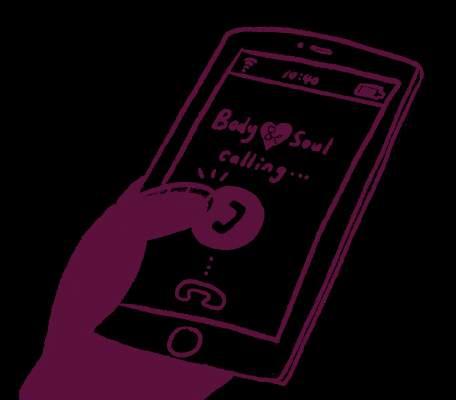
“B&S has been an important place for me from when I needed immigration support. I am HIV+ and had a stroke and no memory of arriving in the country. It took years, but finally received refugee status and supported living. This year has been all about gaining settled status. This is impossible without Body & Soul with English as a second language and so much to manage. When I was told to reapply for my disability benefits, there is so much fear. It is hard enough to make ends meet so B&S is the one place I could go.”
“I have been a member for many years and like to come to the Tuesday evening sessions. Together with therapies, it has helped me to manage my health, especially HIV as well as living with the effects of having a stroke. This year has been hard. I have 2 teenagers and was living in a tiny flat, especially as the boys get bigger and because I need adaptations to get around the house. My son also has needs that I care for too. It became so stressful and began to really get me down so I couldn’t cope. Trying to manage on your own is too much when there’s so many different services.”

“I was referred to Body & Soul after not wanting to live any more. All my family had been lost in war. I made it to the UK but I have been homeless and my application for Asylum has been lost several times. I thought hope was lost too. I have been coming to Body & Soul and have found somewhere where I have been able to talk and get help. I could not have carried on any longer, when you have already been through so much. Now the Home Office have listened and I have my first place to call home. Living can be hard still, but I am thinking of tomorrow for the first time in a long time.”
“I became a member in August this year. I have been very isolated trying manage many debts and be a parent to my son, while still recovering from a stroke. Being HIV+ makes it hard to know who you can speak to. My debts were getting worse, so finding a place to get real help and where I can also relax has been a release. I needed someone to help me reduce the repayments, just to give me a chance. The hardship grants helped me get through, but maybe not as much as knowing someone is looking out for you.”




I met Body & Soul when I was 7 months pregnant with my daughter. Ella first went when she was 3 months old, and I’ve been in visiting ever since. It’s been tough this year. I was asked to leave where I was staying when my friend discovered I was HIV+. With uncertain immigration status and living with chronic arthritis, I was overwhelmed. My only help was a solicitor who stopped answering my calls. It’s hard to protect my daughter. I can see she worries too and she’s very quiet, especially around other children.
I met the team at the Legal Clinic who told me what I needed to do with my immigration papers, even offering to do this for me. Sarah helped me to approach the housing department in my borough to receiving advice from our legal clinic around her immigration and housing circumstances. When things were really difficult, I could ask the volunteer in the Casework Team to give me a voucher for the food bank.

2213
Total number of active members
90%



307
Total number of workshops

979

Total number of therapy appointments
In 2023, our programme monitoring showed: of members feeling more knowledgeable and confident about making healthier choices
95% were better able to manage challenging relationships
90% demonstrated a greater capability to build and sustain positive relationships
92%
found they gained tools they could use in their daily lives to manage their wellbeing

Ella likes visiting Jane and Daniela in the Children’s Service. She did the ‘Superstars’ project to learn skills to help her when feelings become overwhelming, and the drumming and summer programmes. It meant I could focus on myself for a few hours, attending the adult workshop spaces, joining the women’s group, chair yoga, sleep hygiene and body percussion. Between sessions, I get a regular call to let me know what’s on and to talk about anything that’s on my mind.
All of this has helped life feel a bit more stable and manageable. Ella is doing better too. She looks forward to going now and I’m hearing about other children for the first time. Even when it’s stressful, it makes me happy to know my daughter is doing okay.


Written by Hilary
PPP is a unique programme for pregnant mums and mums with children 0-3 who are HIV+. A diagnosis of HIV during pregnancy is both frightening and traumatic and increases maternal isolation and self-stigmatisation. Immigration and housing instability also impact a majority of our parents, and this presents with an array of complexities: poverty, separation from family back home, medical needs and the isolating effect of HIV stigma.


As with all our programmes, we do not focus on the problems but remain focused on the person, the human and what has happened to someone, not what is ‘wrong’ with them. This responds to a high need to connect, meet other positive mums, make friends and feel part of a community, lessening social isolation and post-partum depression, so prevalent amongst isolated mothers. Our HIV clinic partners have been key to referring new members from across London and the South-East of England, from Greats Western Hospital NHS Trust, Swindon to Guys & St Thomas’s.





28 96
Total number of PPP sessions over the year (Online & In-person)



Unique members in PPP in 2023



44 20
Mums received regular support calls to manage ongoing needs
Families have received intensive casework support during this time
PPP programme on Zoom


Understanding my HIV Diagnosis and Medication Adherence: increasing knowledge about HIV and medication and allowing the opportunity to share thoughts/anxieties around HIV and its impact on parenting.




Nutritional Therapy: Foods that support the immune system, well-being and healthy eating in families on a budget.
Feeding My Baby: Increasing confidence around feeding & understanding the other options available.


What Children Need - 1:
Understanding of emotional and practical needs of 03’s, to feel more confident around how to support a baby’s healthy development.


What Children Need – 2:
Understanding of what children need at each developmental stage and the influence our own experience of being parented can have on our parenting.


Relationships and Naming: Increasing confidence around having difficult conversations, increasing sense of empowerment for making choices about naming.

As a mum of an older child and a baby, I started to go to PPP sessions to get more support being a mum. I was diagnosed with HIV after my 2nd child. With the support of my clinic, I chose to breast feed my baby. This was a new experience as I needed to get my baby tested monthly during this process and pay close attention to not mixing feeds.
I received regular support calls from the team, one of whom is a member who has been through the same experience herself. Casework help has helped me get out of temporary accommodation and have some stability for me and my kids.
I have been asked to help be a supporter to other mums in the group, especially those coming for the first time. I like to know that I can just make it easier for people so they can keep coming.



In 2023, our programme monitoring showed:
95%
reported improved emotional wellbeing as a result of being part of this group

85%
feel more confident as a parent after being part of this group
90%
reported feeling less isolated as a result of being in the PPP group


'I want to express my heartfelt gratitude for the invaluable support and guidance this group has provided me during a challenging time. Without the unwavering support of this group, I honestly don't know how I would have coped. The compassion, understanding and sense of community have been a lifeline for me and my children. This group has been my safe haven, a place where I can share my struggles, seek advice, learn and find comfort in knowing that I'm not alone in this journey of mine. The collective wisdom and encouragement have lifted me up when I felt overwhelmed and helped me navigate through very difficult moments with strength and resilience'.
-Single mother of two


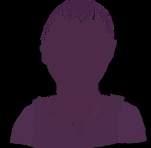


Written by Jane & Daniela
We provide a unique service for children who are not only living with or affected by HIV but who were also affected by multiple other adversities including poverty, discrimination and intergenerational trauma.
Many of the children’s needs will fall below the threshold for support from other agencies, despite the impact on
them being complex and affecting their ability to reach both educational and personal potential. And the secrecy surrounding the nature of health problems within the family, alongside carrying responsibilities children hold, create stressful tense environments that impact children’s ability to function to chronological age expectations.


Our therapeutic family model is designed to equip children with the tools to navigate life successfully while concurrently helping parents to understand and support their children’s needs. We welcome children on a weekly basis, aged between zero and 10, before they transition in the BaSe and then Teen Spirit.
For all our spaces, our aim is to use trauma informed practice, supported by therapeutically informed activities to create a safe space in which children can build meaningful connections. We aim to help enhance children’s understanding of their own well-being and build their confidence, resilience and emotional literacy through fun, creative activities support them to discover their talents and set them on the path to becoming the best version of themselves.

47 Weekly Children’s Meetings

47


37
115 Weekly BaSe sessions

Drumming, sound scaping and music are deeply rooted in the cultural traditions of our community members.
The aim was to foster group cohesion, reduce anxiety and boost confidence and self-esteem.
A wealth of evidence highlights the impact of increased dopamine on prosocial behaviour. Additionally, the design of sessions provided positive collective experiences, helping children to acquire new skills and enhanced self-esteem.


Teen Spirit Nights Families have received intensive casework support
Session 1 used everyday objects to create musical rhythms accompanied by physical movement. This was followed by an instrument making workshop using ‘found materials’. The final session brought children together in ‘bands’ to create musical pieces that were performed to the Adult members at the end of the evening. Their confidence grew as they first performed for the adults and then for the entire group. By the end of the session, they mastered a three-part rhythmic pattern.
Notably, five children who don't always consider each other friends spent the remainder of the evening playing together in the chill-out space, culminating in moments of pure joy and laughter.
“I feel safe and free because it is like a second home with more friends and deeper life skills than school and we have loud times, but we come together.”

Living as an HIV+ mum with three children has many pressures. Managing your health, when your children rely on you, while also wrestling with when or if they need to know, especially as they get older and start to question. For a few years I chose to be away from people, but I knew it wasn’t helping any of us. Coming to Body & Soul has helped me to face things and I can see how much my kids look forward to Tuesdays.

I regularly attend the weekly Tuesday evening services and have joined sessions like ‘Somatic Experiencing’ to manage my stress. I really enjoy the Parents’ Place sessions where we can all be open and just share the everyday things that we can’t elsewhere.
My two youngest children have really benefitted from seeing Jane & Daniela in the Children’s Centre. They run off now and go and find their friends, when they used to want to stay with me.
In 2023, our programme monitoring showed:



83%
Children who attended the ‘Healthy Mind, Healthy Body’ workshops could name at least 1 skill to manage their emotions

92%
Parents stated they had seen an improvement in their children’s ability to regulate their emotions
My eldest daughter has now started to come with us. She’s finding it hard being a teenager, but she understands why we come here now and has had help from one of the therapists to talk about what’s on her mind rather than hold onto it like she used to.
My other daughter loves going to BaSe, for preteens. I hear about her friends and how she really gets on with the staff. She’s come out of her shell much more and I know that helps her when she’s at school too.



“My
children just love coming to the group. We have nowhere else to go as a family, so this is our only time to relax with friends. I can feel the change in us all, life is so much better.”

80%
Of the teens felt more comfortable talking about HIV
Of them have become more confident with talking about their needs 80%

of the teens have grown in confidence to try new things 95% of group members identified at least one positive friendship they have made whilst coming to the group 90%

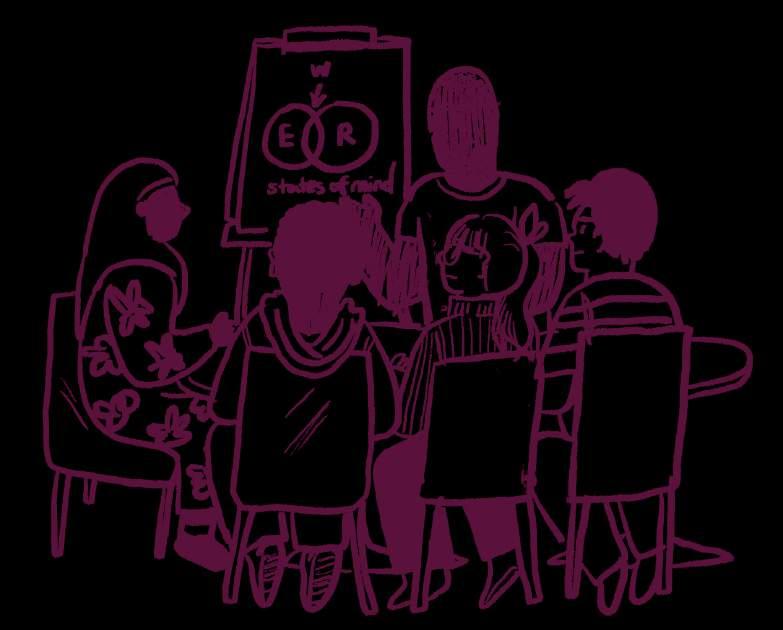


Written by Katie & Amanda
The ‘You Are Not Alone’ Service aims to reduce the risk of suicide in young people, supporting members to build a life worth living and a sense of belonging through a combination of therapeutic and community-based support. YANA is for young people ages 16-35 who have made an attempt of suicide within the last 12 months. We believe that young people who are suffering and at a point of despair can learn to thrive, not just survive. Our mantra is: “Body & Soul is here to help you get through your life, not just make it through the night.”


You Are Not Alone stands apart from mainstream mental health services in a number of fundamental ways. The programme provides highly evidenced therapeutic interventions for young people at risk, but it also provides a continuum of psychological support to begin to reconnect people to their life goals.

We offer support in two stages:
Stage 1: Begins with a 24- week course of group DBT (Dialectal Behaviour Therapy) Designed to learn skills to manage distress, to identify emotions and reduce suicidal and self-harming behaviours.
Part 2 Graduate pathway: Members have access to a wide range of activities including 1:1 therapy, community evenings, courses, creative workshops, and volunteering, all of which are designed to help to build a life worth living.

5
Community Evenings

4
DBT skills mastery sessions

2
Whole community celebration events


1,310
1:1 Support sessions

173
DBT group sessions

3
Gatherings of ‘the Collective’ for graduates who are black or of colour
Rooted is a series of creative, trauma-engaged workshops that encourage members to apply their DBT skills in new contexts, develop their lifeworth living goals, whilst supporting each other within their shared community.
Through our latest 2023 Rooted course, members experienced a statistically significant positive shift in self-connection scores (using the validated Self-Connection Scale). The component of self-connection which predominantly drove this change was self-acceptance, with a large significant change in score for the question ‘When I find out things about myself that I don’t necessarily like, I try to accept those things.’ This movement towards members becoming more accepting of themselves speaks to our core impact areas around personal identity
574

Young people supported as part of YANA Commnunity

17
Rooted Course sessions

and self-esteem, creating a solid ground from which to build relationships with others and to have the confidence to pursue life worth living goals. Its significance can also be understood within Gabor Mate’s framework of trauma being the disconnection from the authentic self, and healing being the re-connection to the authentic self.
Here’s a few Somatic Body Maps created by members during this Rooted course. On the left is a stark representation of new motherhood; the middle one speaks to the member’s shifting relationship with dance; and the final one is a poignant portrayal of grief with the yellow chairs symbolising both the heaviness and joy of continuing to carry people after they have gone.






I was referred by my local IAPT to YANA at the end of 2022, not long after my life nearly ended. I’d managed to stay sober for a few weeks, although I’d self-harmed daily for nearly 10 years. I had reached the point where what had happened to me growing up had caught up with me and I was desperate for something that could break the cycle of self harm and abusive relationships.
I joined the DBT group in February and it felt right from the start. The structure and skills really worked for me. I could apply mindfulness to my every day and use the skills to regulate my emotions for the first time my DERS (Difficulty in Emotional Regulation Scale) score had dropped from 170 to 70 – a drop of nearly 60%.
After 6 months in group I began my graduate pathway – including a second round of DBT, an option that is open to YANA members as repetition can be of great benefit for consolidating and maintaining skills.
I also began volunteering, using skills I didn’t realise I had to help other young people see there are ways forward, even in the darkest of places.

“The will to live; courage over my fears and anxiety; feelings of connections to other humans and the universe; trust; a sense of purpose; the ability to move on and be present; peace in my heart”.
In 2023, our programme monitoring showed:
100%
Of members are better at regulating their emotions with a 50% average increase in ability to regulate emotions.
Members have improved their wellbeing since starting programme. 100%
Members have not selfharmed during programme 69% Increase in wellbeing on overall WEMBS score 54%

Autumn 2023 saw the launch of the fifth DBT group for those aged 16-20 years of age. This is a new initiative following the same structure as our other DBT groups with distinct adaptations. The ‘Why’ is simple: young people approaching the age of 18 who are feeling upset, anxious, or suicidal are often faced with a cliff edge when it comes to available support. A systematic review found only 25% of young people were transitioned to AMHS (ACAMH, 2019). No longer qualifying for CAMHS the Adult Mental Health Services (AMHS) can feel difficult to navigate and often come with long waiting lists for therapy often not designed to address suicidal ideation. In some cases, with A&E often the only immediate place for support, this can lead to young people facing an enforced and re-traumatising stay on a secure ward.

Our specialised YANA pathway for young people aged 16-19 years provides the longer term, wraparound and age relevant support that is needed. To maximise accessibility for this underserved group, our referral criteria allow for those who are experiencing suicidality and as such they need not have made a suicide attempt in order to be referred and assessment processes have been adjusted to increase age appropriateness, multi-disciplinary working and incorporate simultaneous support for primary sources of support through Braver Together. We have carefully designed a bespoke workbook for members of this group to work with so that all their learning and homework can be kept all together in a format that includes graphics and wording that are appealing and relatable.


Written by Rachel
Starting last year, Braver Together has continued its 12-week programme for friends, family members, partners, siblings, housemates or chosen family of someone who is suicidal or self-harming. The course draws on the teachings of Dialectal Behaviour Therapy (DBT) to increase knowledge of symptoms and behaviours linked to suicidality, understand their own responses to their loved ones and to be able to support them more effectively.
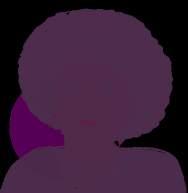
Written by Kudzai
2023 also saw the foundation of ‘The Collective’ for Graduates who are Black or of Colour, a space for nurturing, affirming, and celebrating YANA graduates who are Black or of Colour. The Collective has already had an impact across all levels of YANA programming. Members of the Collective play a core role in welcoming new DBT intakes, sharing feedback with DBT facilitators around how to decolonise their teaching of the DBT skills, as well as developing a new Rooted course based on Intergenerational Trauma. We’re excited to continue this development and see its impact across YANA referrals, engagement and drop-out rates, and member-leadership roles for young adults who are Black or of Colour in 2024.

Read the mission statement here:
Braver Together provides a systemic approach to suicidality, recognising that support networks can be strengthened to become protective factors for young people by:
• Providing a non-judgemental space for caregivers of suicidal individuals.
• Building a caregiver’s support network and reduce isolation and improve resilience.
• Helping caregivers set effective boundaries.
• Improving communication using a shared, emotional literacy.

Members have identified improvement in their Mental Health

90%
60% 75%
Felt that their relationships improved

Identified improvement in the home environment







Written by Virginia
Mindset continues to have a positive impact on members’ depression and anxiety. After a userwide survey, 97% respondents reported Mindset improved their mental health.
Our digital mental health resource, Mindset, is our member-led response to the deepening mental health crisis. In 2023, 1 in 8 YP now have a mental health disorder, all exacerbated by a healthcare crisis where mental health services are overwhelmed by demand.
Positive Social Media
At a time when social media is being criticised for its part in young people’s deteriorating mental health, Mindset has grown in influence amongst young people looking for accessible ways to cope. Active on Instagram and TikTok, this year we:

5.4k
Active users doubled from 2.7K to 5.4K

74k
Increased reach from 3.7K to 74K

7.4k
Most viewed video increased from 1.4K to 7.4K






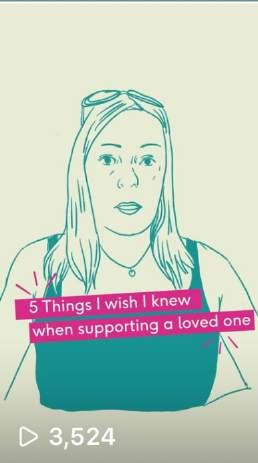
Peoplethat use Mindset have said...

“Mindset helps me remember little ways to make it easier to cope and manage my Mental Health.”




“It helps me feel less alone in my struggles!”

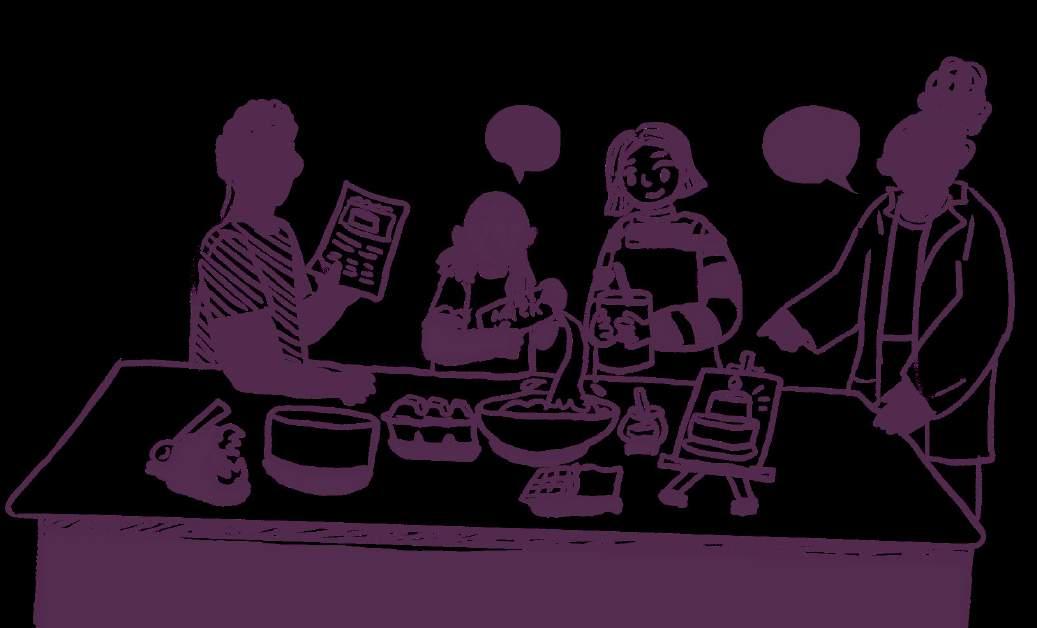

Written by Aarati
Explorers & Teen Spirit are programmes for children & young people aged 7-12 and 13+ respectively, who are adopted or under special guardianship. Now running for over 7 years, Explorers & Teen Spirit remains the only group based therapeutic provision for adoptive families and special guardians. What also sets this service aside is the offer for ongoing engagement for all family members, which we believe is critical for young lives that have been impacted by family disruption. The model provides a safe, consistent community context in which children and young people can develop attachments and the skills to navigate their everyday world, one that is often not attuned to their needs or how they see the world. The service is designed so that whole families have access to an integrated programme that helps build resilience within adults and children equally.


Programmes throughout the year at Body & Soul are designed around a range of needs. The therapeutic community approach supports the development of peer relationships whilst providing consistent work to address emotional regulation, selfesteem and positive identity formation. For children often struggling to cope with peer relationships, this is commonly multiplied by exclusion from school and often from other social settings. Parents too experience a strong sense of being ‘left alone’ to manage, without access to ongoing support.

*ASG: Adoption & Special Guardianship
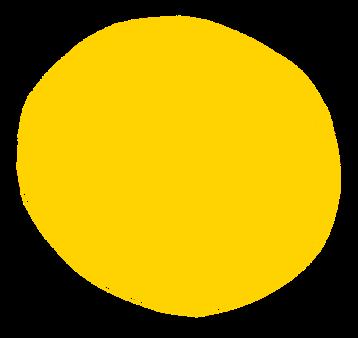
ASG support days (caregivers, teens, and young children)



Family members supported

In the December sessions, we centred our activities around Gratitude & Giving. The end of year can pose specific challenges for our members and their families. Seasonal moods, fatigue, shifting routines, the anticipation of Christmas and holidays—all contribute to vulnerabilities and heightened emotions around associations with birth family and the dynamics of family in general.
Our Programme teaches behavioural skills from DBT to address these challenges, working with all the family to share ways to notice and regulate emotionally. The activities, ranging from jewellery workshop, music projects and cooking, were all strategically designed to rehearse skills like Opposite Action, intertwined with the concept of creating and giving gifts. This served as a meaningful way for individuals to express gratitude both to themselves and their family members.
At the end of project, children offered handmade food, jewellery and presents to their families. Furthermore, all the family members also created advent calendars outlining different acts of service that allowed them to support each other.
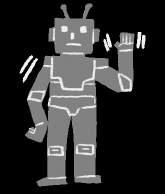


Recognizing Urges Practicing the 4 steps
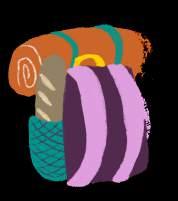
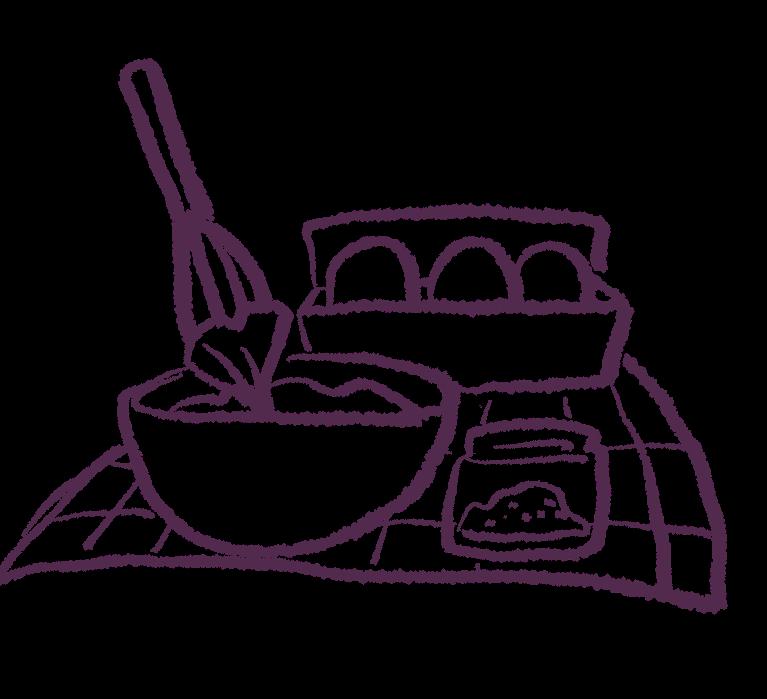

When I joined Teen Spirit in February, life was feeling difficult. The last couple of years have felt a confusing time.
Coming every week has changed things. I get a DBT skills coaching time every week so I can approach situations differently and life’s a bit calmer.
I also get some time with one of the therapy team when I’m here on a Saturday. It’s the first time I’ve been able to be open knowing that even therapists can have experience of the same things that you’re dealing with.
Life’s still been hard, but the downs are not quite as often or so long. Maybe that has allowed me to have the space to start to imagine the things I want to be doing in the future. I’m getting there!



In 2023, our programme monitoring showed:



of children showed an eagerness to participate and engage in activities outside their comfort zone in Body & Soul of children report making friendships inside and outside Body & Soul 85% 85% of caregivers feel they have an access to safe space to talk about their concerns without fear of judgement 90%

100% of Special Guardians have shared that B&S is one of the few spaces that offers specific support around special guardianship

90% of children have reported they feel happy about coming to Body & Soul regularly

99% prevention of placement breakdowns

“Unlike school and elsewhere, Ron’s issues are not met with punishment, aggression, rudeness and unkindness. Rather, the staff at Body and Soul understand that adopted children, and those with ADHD and ASD, present with complicated needs and that the behaviour this leads to is not easily dealt with... I believe that Ron’s being able to attend Body and Soul has assisted him greatly as he was able to “let his guard down” in a trusting environment and also speak to staff members about incidents which had happened if he wished to do so knowing that he would not be judged.”
Adoptive Parent, 2023


Written by Zoe
Beyond Boundaries, our phone support service that calls members, remains a vital lifeline. It is a ‘portal’ to all of our resources, through checking regularly about housing and immigration, to supporting mental health and helping members to navigate difficult moments. It shows that we care but also helps us back at Body & Soul to adapt our programmes to emerging needs. If it’s beyond our specialisms, we can provide advocacy or signposting to our partner organisations. Throughout, empathy and non-judgemental support are paramount.


91%


of members are black or people of colour facing a range of additional barriers to sustained security and wellbeing.
Our members are recognised as being at a disproportionately higher risk of death, living in poorer quality of housing and largely surviving on benefits or minimal vouchers when they are within the asylum system.
Telephone & remote support figures

The service is able to recognise these additional risk-factors and support wherever needed. Calls reach out to our members for an average of 20mins at a time, working in partnership with members so they can decide what works for them. This consistent relationship building, allows members to set an intention that is developed and addressed over a timeframe agreed with each member. Our aim is to always reach the highest number of people at any time, whilst always ensuring that everyone’s experience is tailored to what is needed in the short and long term.
Our team and therapeutic provision continue to develop and at the end of 2023, the team was comprised of 22 therapists offering sessions in Integrative Counselling, Nutritional Therapy, Art Psychotherapy, Child & Adolescent Psychotherapy, CBT, Behaviour Therapy and EMDR.

2165

Total therapy appointments
Therapy Feedback

85% of referrals responded to within 48 hours

Total number of calls in 2023
14,758 1238
1140

Number of members served

Casework specific calls

174 Total unique members accessing 1:1 therapy

75%


87.5%
would recommend their therapy to a friend or family member based on their experience with the remaining 12.5 % saying they would be ‘Likely’ to recommend therapy based on their experience of those members said that the therapy met their needs ‘a lot’ or ‘completely’



Written by Jed
At Body & Soul we consciously create moments that bring the community together in the same space. This has become a phenomenon that fuels the sense of belonging and connection. Gatherings are also key ‘Rights of Passage’, marking significant steps on our respective journey of life. From greeting new members to celebrating achievement, this has become engrained into life here. Our annual YANA Graduation is a community-wide marking of everyone completing 6-months of DBT therapy.
“In awe we understand we are part of many things that are much larger than the self.”
- Dacher Keltner


The emotion of awe was the inspiration behind our Annual Graduation Celebration (where we mark the moment of ‘graduating’ from DBT Group). Drawing from Keltner’s recent publication,
‘Awe - the transformative power of everyday wonder’, the YANA community created an immersive experience through the 8 wonders of life; moral beauty, collective effervescence, nature, music, visual art, spirituality, mortality and epiphanies. The emotion of awe is apt for YANA. It represents how we feel as a community when we see a young adult ‘graduate’ from their DBT Group knowing the hard work they have put in every single day to get to that point; as well as speaking to the renewed energy for life so many YANA members feel after learning the skills and beginning to truly believe in their life worth living.
The event was a celebration of choosing life, embracing wonder and the power of community.

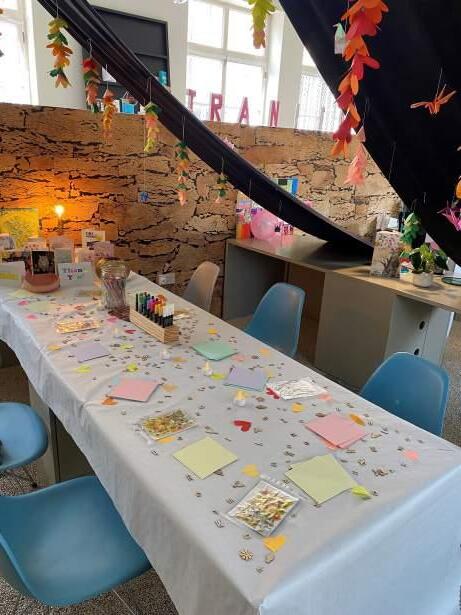





This has been an ongoing project throughout the year. Members of all ages have been engaged with the project, leading to an intensive period of rehearsals in July and August, before bringing a series of performances of The Odyssey to the stage. Nearly 30 members performed in a full-scale musical production on the Olivier Stage at the National Theatre!
More can be viewed here: The Odyssey | National Theatre.



A dance project run in partnership with dance artist Shivaangee Agrawal and the London Contemporary Dance School for adults on the HIV programme. We explored ideas around water and self expression. Regular goals included decompressing from the day, moving like water / in water, giving your own body what it needs today, moving our bodies and allowing sounds / voicing to happen. We used techniques including drawing, choreography, mirroring, partner work, small group and whole group work, interpretive drawing, interacting with others’ drawing through dance. The sessions were centered around interaction and connection, as members worked together to develop their dances, drawings and performances. Feedback included feeling love, friendship and joy.
A two-day project in partnership with the Arsenal Hub for BaSe, ASG and Teen Spirit. They provided coaching staff to run the football sessions, and Body & Soul staff laid on drama workshops exploring identity, self-esteem and emotions. We played football, made ourselves selfsupport placards and flags, and even had a stadium tour!

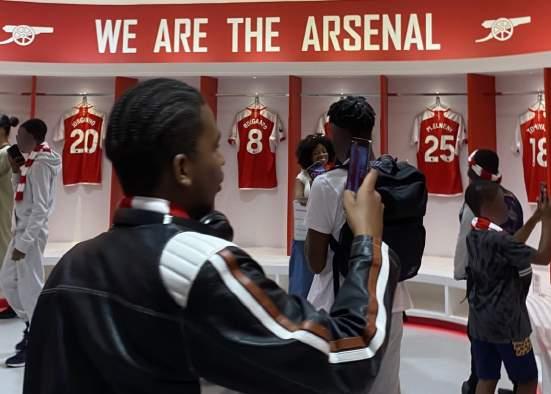

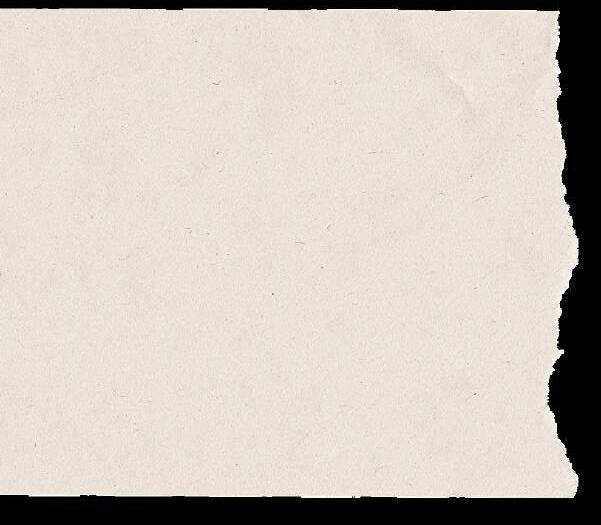
Hit It! With Kinetika Bloco
We hosted workshops looking at samba rhythms, group drumming and learning about Brazilian traditional music. We are focusing on our Connected impact area, aiming to see improved interpersonal skills and feelings of social connection. The children demonstrated great skills with patience, listening and turn taking and were able to pick up rhythms quickly once introduced, working together and trying again when something didn’t work. There were also a lot of new connections in the group, with 5 children who wouldn’t usually play together doing so afterwards.
A day of workshops and a play performance at The Yard Theatre for 20 teenagers across the Adoption and Special Guardianship and Living with HIV programmes. The play, Pressure Drop, was devised in collaboration with teens from schools around Hackney, looking at issues relevant to them. There was a panel discussion with the cast and crew afterwards, during which Body & Soul members asked a lot of really interesting questions. The group also attended two workshops: Seeing Red/Feeling Blue which explored emotional regulation and handiling difficult or big feelings such as anger and sadness, and Boundaries, Please! Which looked at consent, physical touch and intimacy, and healthy relationship building. We had a lot of fun, witnessing each other perform, laughing, crying and sharing.



End of Year Celebrations
The theme of this year’s holiday parties was ‘Winter Towns’; Body & Soul’s re-visioning of the traditional Christmas tree, created by members and community partners, to symbolise the coming together of community, belonging, light and hope. Each Winter Town had its own unique features – interactive games, sensory surprises, gifts, etc., and was illuminated and decorated with architectural details and lighting. Within the YANA community, we themed our ‘Winter Town’ around ‘How to accumulate positive emotions in winter’ - to bring to life all the different ways we can find joy, connection and community even in the darker, colder months where members may be spending more time alone.
See on the right some of the gorgeous homes, shops and street corners created by members. The Winter Towns project provided an ongoing creative drop-in space for members over November and December – keeping members connected, feeling part of something and providing a sense of giving back.





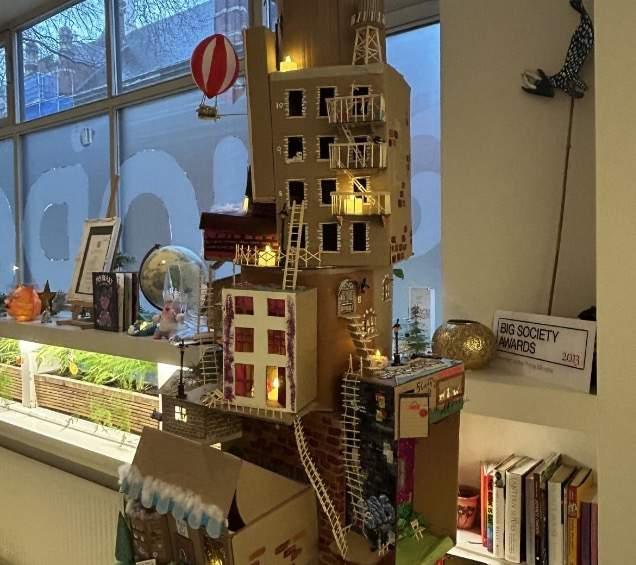



DBT group co-facilitator


Written by Beth
In 2023, our Volunteering roles include:

Social media content creation

De-colonizing DBT curriculum

Outreach: Getting the word out about YANA
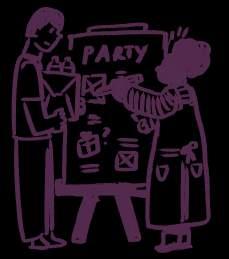
Event & Party planning

Children’s centre volunteering
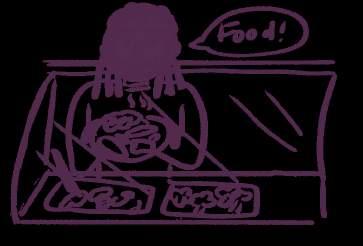
Dinner hosts for community nights

Creative communities project

Casework with other members

DBT skills teaching to the kids
And others, including Front of house, Casework advocate, Workshop support, Phone Support Volunteers, Art workshop facilitator, therapists...
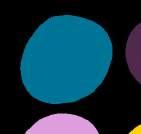










268 regular volunteers
370 corporate volunteers Supporting Children & Young people
638 Volunteers

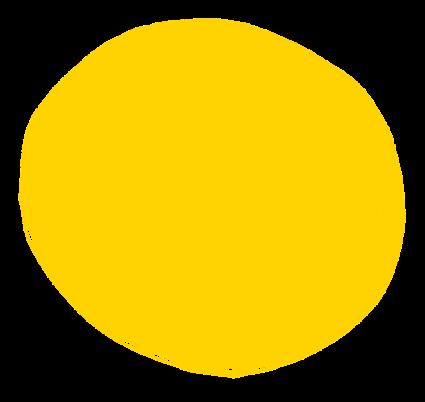
10,241 Total hours












community. We want to say thank you to the rare individuals, organisations, companies and funders in Body & Soul’s life who have shown up with support, spoken with kindness, helped with consistency, understood with care, and loved us generously.

